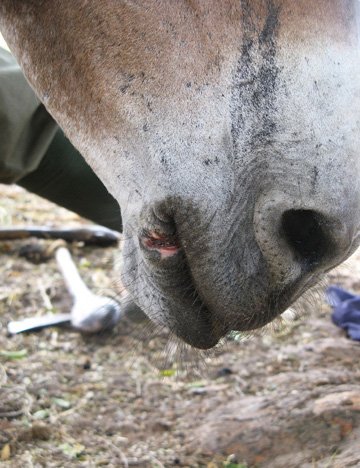Locally produced bit reduces lip lesions
In Ethiopia’s Halaba district, painful and unnecessary wounds caused by ill-fitting or poorly designed bits are common in the gharry horses. These horses pull gharries - carts or carriages used to transport people or goods.
Free bits, made and imported from the UK, had previously been distributed to gharry horse owners in nearby Shashemene, a town 60 kilometres from Halaba. Consequently, there was demand from owners that Brooke should also freely distribute these bits.
Brooke staff in Halaba recognised that distributing free equipment can create dependency, so instead, they took the design of the bit to a community blacksmith, who trialled different methods in order to reproduce it using local materials.

Six gharry horse owners volunteered to trial the prototypes on their animals for three weeks; three horses had mild to moderate lip lesions and three had no lesions at all. After three weeks of using the new bits, the horses with the mild to moderate lip lesions were found to have no wounds at all. Those horses without wounds remained lesion free.
With this positive evidence, Brooke Ethiopia has driven the project forward. Local blacksmiths now mass produce this bit and are able to sell it at an affordable price to gharry horse owners and users. The bit is already in demand within Halaba and beyond and local blacksmiths have now sold more than 600 bits.
With this innovative scheme, Brooke Ethiopia has proved that simple steps can lead to lasting positive change for these animals and their community.
See also
Farm Animal Centre for Education (FACE) in South Africa is the first recipient of Brooke’s Innovation Fund.
